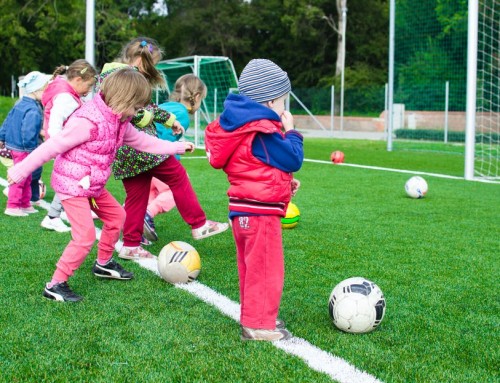Do you want to strengthen family relationships? Are you looking for ways to get everyone in the family to become closer and more open with one another?
This guide on how to create a strong family bond will help you out.
Nowadays, technology connects the world yet people are more isolated than ever. Depression, anxiety, and other mental disorders are more common. Families with divorced or single parents are also a common occurrence in the US.
Except for technology, the latter things are difficult to deal with. Children suffering from such conditions might suffer for the rest of their lives. A strong and healthy family bond helps in thwarting their grim effects.
1. Eat Meals With the Family
The dining room is one of the most important places in the house. It’s a place where parents and siblings connect. It’s also one of the cleanest, comfortable, and safest spaces in the house since it’s where you eat.
Family meals are the best times in the day to come together and bond. Parents set an example of table manners and build a sense of belonging. During meals, children learn polite table manners and healthy eating.
Since most members are out at school or work during lunch, it’s reasonable if the entire family can’t come together. However, the family shouldn’t rush through breakfast. Also, family dinners shouldn’t be awkward, tense, or difficult.
2. Chores Are More Fun With Family
The parents should be the only people taking care of the home. Children should also learn to tend to it to prepare them for when they grow up and earn their own homes. Teach your children the value of hard work by starting with simple chores.
Call your kid to help tend the garden with you or assist you in getting groceries. If you’re cleaning up the house for spring, have your kids aid you. Siblings should also learn to share the responsibilities and chores.
Preparing dinner shouldn’t be the job of only one person. For parents, dinner preparations become easier with the aid of the children. For kids, it becomes a learning experience for them.
Also, remember that a family that works together can eat dinner sooner.
3. Play Together
If your family needs to learn to work together, it should also play together. Setting aside time to play together is great for family bonding. Plus, “playing together” can still apply no matter the age of your child or children.
A great way to make sure that everyone has the time for it is to schedule a family day or night. For most people, it’s Saturday nights or Sunday morning. It’s best to set a weekly family game time.
Games are a great way to be competitive and build confidence. If you have a gaming console, get a multiplayer game for the family. Bring everyone to a laser tag game on special days or start a snowball fight on-the-spot.
Tabletop or board games are also a great way to keep things interesting. If you want a game that tickles everyone’s creativity, whip up a game of Dungeons and Dragons. Parents and older kids with a knack for story-telling might enjoy being the Game Master.
4. Spend Time Together in Spiritual Growth
Strengthen your family bond by developing you and your children’s relationship with God. Set an example by urging everyone to pray together. Try to have everyone lead your prayers throughout the day.
Reading the bible is also a great way to build your family’s spiritual bond with God. Together, read a part of the bible and talk about it. You can also take online bible studies to better understand each verse, chapter, and/or book.
Remember, faith is a powerful thing that you can impart to your children. They might stray from faith one day due to youthful desires. However, at least they always know the path back to God.
5. Hold Family Meetings and Reunions
Christmas, Thanksgiving, and birthdays are great times to meet with the relatives. However, there aren’t holidays for the nuclear family to check in with each other. People often call for family meetings only when big changes occur, like marriage or a death in the family.
Don’t wait for situations like this before you talk to each other. Hold family meetings even when small things come up. For example, you might want to talk about the chores for next weekend.
If you notice that your children always fight, straighten things up at a family meeting. When both sides get to open up about the issue, this ensures fair handling of their conflict. Even children can call for a family meeting when their parents are becoming more distant.
Family meetings don’t always have to spell bad news. You can talk about your promotion at work or about the family’s summer vacation destination. Here, you can also break the news that you’re getting relocated for work.
Family meetings are a great way to open communication for everyone.
When you and your siblings grow older, you can still meet up through reunions. Holding reunions also familiarize your children with their cousins and other relatives.
6. Care for and Watch Over One Another
Fun activities and family meetings aren’t enough to create a strong family bond. Everyone also needs to show each other care and kindness. Often, people with high emotional intelligence are most effective at this.
The home is where a child first develops emotional intelligence.
If you are a child with aging parents, see to their needs as they’ve seen to yours when you were younger. If you see that a sibling is having a hard time getting by, lend a hand with no expectations. If your sibling tends to depend on others, see to it they take steps to support themselves.
If you observe destructive tendencies in a loved one, take steps to prevent them from hurting anyone or themselves. If you suspect that your sibling or child is getting bullied, don’t remain quiet. Teach them to stand up for themselves and take legal steps to report the incident.
7. Support One Another’s Interests
At 26.8%, the City of Truth or Consequences has the highest divorced population among other US cities. One of the most cited reasons for divorce is a lack of commitment, followed by infidelity. This lack of commitment often shows in lack of awareness in your partner’s interest.
Get involved in each family member’s interests. This helps build a stronger relationship between you, your partner, and children. Notice what they’re passionate about and make time to take part in those activities.
Is your child interested in martial arts or music? Enrolling them in classes isn’t enough to get involved in their interests. When they have a tournament or recital, make sure you attend.
If your child loves reading books like Harry Potter, read the books in your time and talk about it with your child. Is your kid showing a lot of interest in visual arts or Marvel superheroes? Inspire them to better pursue their interests through active involvement with them.
8. Make Time for Family Activities
Like Family Game Time, you can develop strong family bonds when you do activities as a unit.
These activities will often depend on the age of your children, your budget, and how much time you have. Go on a road trip and see new places together on your way to visit other family members.
You can also go to art museums and learn to make art with the family. Go to the zoo or a Marine Park and get educated about animal life. Join a dance class or fitness class with your children and get fit together.
In 2018, the US Census Bureau found that 38.1 million people remained poor despite a decline in poverty. If your family lives below the poverty line, you can still hold fun activities. You don’t need to visit other countries to enjoy a family activity.
Local or home-based activities are enough to bring a family together. Buy an inflatable pool or set up a basketball court in your yard. The key lies in everyone enjoying themselves during the activity.
9. Do Volunteer Work as a Family
Volunteering isn’t only beneficial to the recipients of the act but also to the volunteer. Research says that volunteering can make you happier and more grateful. It’s also a very positive and inspiring learning experience for everyone.
One way to create a strong family bond is to volunteer as a family. You can agree to donate clothes, food, and toys. You can also sign everyone up to help in the local food bank.
You and your kids get exposed to people from all walks of life. Also, you learn to appreciate what you have. Volunteering can also help build up emotional intelligence or empathy for others.
10. Support and Establish Open Communication With One Another
Communication is the key to a healthy and deep family bond. While there are things left unsaid, you have to say the things that matter. Things like “I love you”, “sorry,” or “thank you” often go unsaid but have powerful impacts.
Talk to each other about small things like work or your daily frustrations. If you have a problem with how your brother leaves the toilet seat down, tell him. If you want your child not to get too focused on social media, let her know.
Remember that big problems often start with small problems. Don’t wait until you have to talk about the big issues only. When you talk to family, it’s important to be straightforward but respectful.
This way, your family members don’t have to learn about their bad habits the hard way. Since you’re family, criticism is also more welcomed than when it’s coming from other people. It’s less embarrassing to hear about your yellowing teeth or body odor when it’s coming from family, isn’t it?
Note that what you say without words also influence what you say. Nonverbal cues like the tone of voice, body language, and facial expressions are more powerful than words. Don’t forget to take responsibility for your nonverbal cues.
11. Build up Your Family Bond With Other Families
For many parents in the US, having two to three children is the ideal family-size. Others find that having one child is enough. However, if your child is a single child, his or her early life might be a lonesome one.
To help your child feel less alone, get closer to other families. Allow your child to make friends with other kids in the same age range. A friendship forged from childhood is a special and rare one.
At the same time, get to know other parents and build bridges with them. Plus, a fellow mother’s advice on housecleaning can help you save up. A fellow father’s contacts may open new doors and opportunities for you or your family.
12. What to Avoid to Strengthen Family Bond
Taking photos and videos to commemorate family bonding moments is fine. However, as much as possible, try to keep these moments tech-free. This way, everyone is experiencing the authenticity of such moments.
Workaholic parents or tech-savvy children might find this difficult. It’s best to ease them into it. Start by banning phones and other devices at dinner and progress from there.
Don’t try to control the decisions of your loved ones. Remember that they are their own person and they must learn to make choices for themselves. The best you can do is guide them and support them in their decisions.
Avoid solving the problems of loved ones. You can guide them but you must understand that they need to learn to fight their own battles. Otherwise, they will always depend on you for help.
Remember that knowing a loved one doesn’t mean you understand them. Don’t build your understanding of someone around memories of them only. People are more than their past selves so learn to get to know who they are now.
Bond With Your Family Today!
Don’t hesitate to follow these steps and learn how to strengthen family bonds. As the saying goes, the family is the first building block of society.
It’s where we learn things like respect, kindness, and strength. It helps mold our outlooks in life and personalities.
Family is our most immediate and influential support system. Our family guides us and helps us improve ourselves. Thus, a strong family bond is critical in a dependable and consistent support system.
But why stop here? To read more content like this, check out our other articles today! We offer a plethora of other guides so you can continue learning more lifestyle and family tips!











